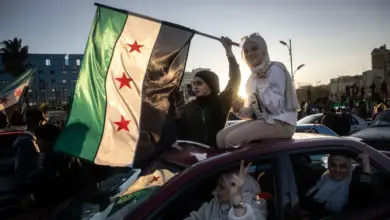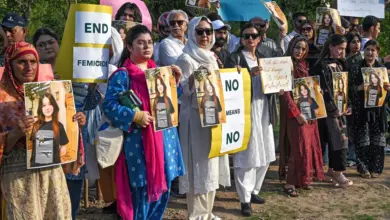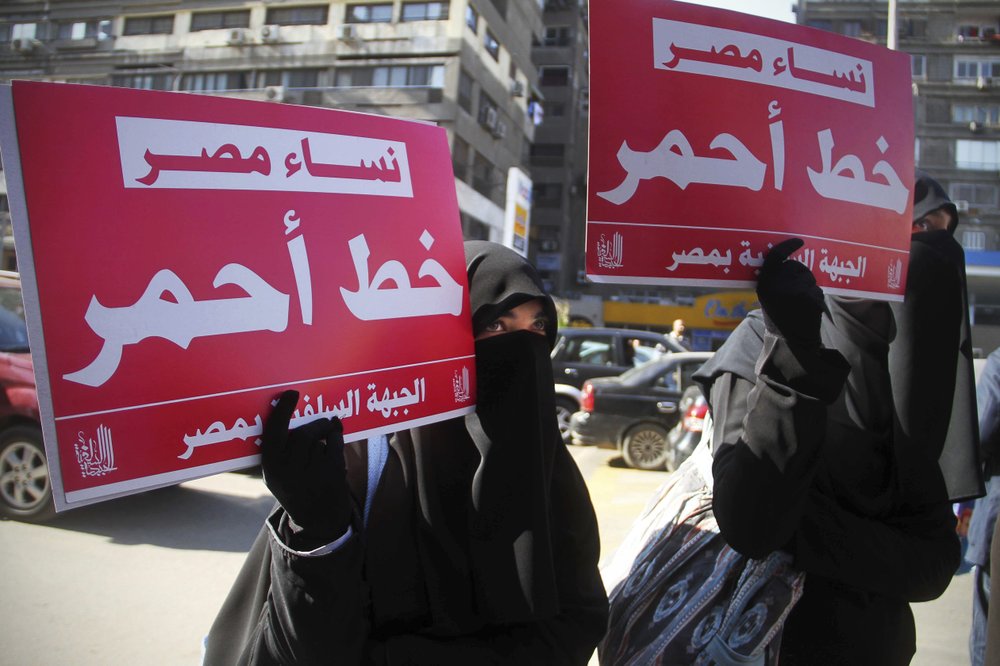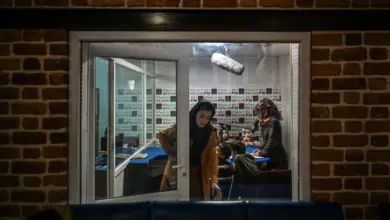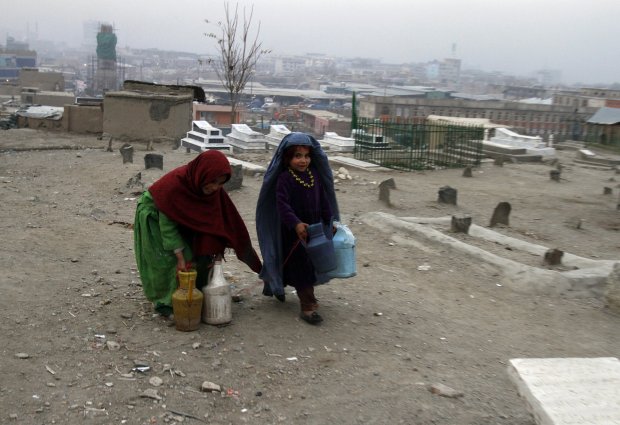
KABUL, Afghanistan — Just 15 years old, Sahar Gul has become the bruised and bloodied face of women's rights in Afghanistan. The teenage bride's eyes were swollen nearly shut as she was wheeled into the hospital seven months after her arranged marriage. Black scabs crusted her fingertips where her nails used to be.
According to officials in northeastern Baghlan province, Gul's in-laws kept her in a basement for six months, ripped her fingernails out, tortured her with hot irons and broke her fingers — all in an attempt to force her into prostitution. Police freed her after her uncle called authorities.
The horrific images, captured by television news cameras last week, transfixed Afghanistan and set off a storm of condemnation. President Hamid Karzai set up a commission to investigate, and his health minister visited her bedside. Police arrested her in-laws, who denied abusing her. A warrant was issued for her husband, who serves in the Afghan army.
The case highlights both the problems and the progress of women 10 years after the Taliban's fall. Gul's egregious wounds and underage wedlock are a reminder that girls and women still suffer shocking abuse. But the public outrage and the government's response to it also show that the country is slowly changing.
"Let's break the dead silence on women's plight," read the title of an editorial Wednesday in the Afghanistan Times.
Despite guaranteed rights and progressive new laws, Afghanistan still ranks as the world's sixth-worst country for women's equality in the UN Development Program's annual Gender Inequality Index. Nevertheless, Afghan advocates say attitudes have subtly shifted over the years, in part thanks to the dozens of women's groups that have sprung up.
Fawzia Kofi, a lawmaker and head of the women's affairs commission in the Afghan parliament, says the outcry over a case like Gul's probably would not have happened just a few years ago because of deep cultural taboos against airing private family conflicts and acknowledging sexual abuse — such as forcing a woman into prostitution.
"I think there is now a sense of awareness about women's rights. People seem to be changing and seem to be talking about it," Kofi said.
Ending abuse of women is a huge challenge in a patriarchal society where traditional practices include child marriage, giving girls away to settle debts or pay for their relatives' crimes and so-called honor killings in which girls seen as disgracing their families are murdered by their relatives.
And some women activists worry that their hard-won political rights may erode as foreign troops withdraw and Karzai's government seeks to negotiate with the Taliban to end their insurgency. Women's rights, they fear, may be the first to go in any deal with the hardline Islamic militants.
"I'm afraid we won't have all this anymore if the Taliban are allowed back into society," said Sima Natiq, a longtime activist.
Freedoms for women are one of the most visible — and symbolic — changes in Afghanistan since 2001 US-led campaign that toppled the Taliban regime. Aside from their support for Al-Qaeda leaders, the Taliban are probably most notorious for their harsh treatment of women under their severe interpretation of Islamic law.
For five years, the regime banned women from working and going to school, or even leaving home without a male relative. In public, all women were forced wear a head-to-toe burqa veil, which covers even the face with a mesh panel. Violators were publicly flogged or executed. Freeing women from such draconian laws lent a moral air to the Afghan war.
As US troops begin to draw down, activists say Afghanistan is unmistakably a better place to be born female than a decade ago.
In parliament, 27 percent of lawmakers are female, mostly because the constitution reserves 68 seats for women. More than 3 million girls are in schools, making up 40 percent of the elementary school population, according to the education ministry. A survey last year indicated that women dying in childbirth had dropped by nearly two-thirds to below 500 per 100,000 live births since 2005, although that is still one of the world's highest rates.
Still, for every improvement, there are other signs of women's continued misery. The UN says more than half of Afghanistan's female prison population is made up of women sentenced by local courts for fleeing their marriages — the charge is often phrased as "intent to commit adultery," even though that's not a crime under Afghan law. And the UN women's agency UNIFEM estimates that half of all girls are forced to marry under age 15, even though the legal marriage age is 16.
"There's very good standards on paper. There's very active women's networks," said Georgette Gagnon, the UN's human rights director in Afghanistan. "A lot has been done, but there is still a long way to go."
A UN report in November also found that a 2009 law passed to protect Afghan women from violence was rarely enforced. For the 12-month period ending in March 2011, prosecutors filed indictments in 155 cases, only 7 percent of all 2,299 crimes reported. And activists say those complaints are a small fraction of the true level of abuse.
Part of the problem is the ingrained attitudes of police and courts that cause them to turn a blind eye or even send women back to their abusers, said Latifa Sultani, coordinator for women's protection with the Afghan Independent Human Rights Commission.
"Some local officials still believe women shouldn't have rights," Sultani said.
Last month, Karzai pardoned a 19-year-old woman who was imprisoned after she was raped and impregnated by a cousin. A local court sentenced her to 12 years in prison for having sex out of wedlock, a crime in Afghanistan. The judge told her she could get out of prison if she agreed to marry her alleged rapist, but she refused and gave birth to her daughter in prison.
Passing laws that protect women is one thing, enforcing them is another. Women's groups are pressing Karzai to do more, but most acknowledge that with the central government so weak, the real battle will be fought in individual police stations, courtrooms and prosecutors' offices. Not least will be persuading Afghans to change their views.
That's why the gruesome story of Sahar Gul's imprisonment and torture is seen by some activists as an opportunity for the government to recommit publicly to women's rights. They say are encouraged that Karzai felt compelled by the outcry to become involved.
"This is a sign of progress in a way," Kofi said. "This is just a small example. We have hundreds of thousands of women like Sahar Gul who are victims of violence, but their voices are not heard."
For now, Gul remains in a Kabul hospital, where she transferred from a local hospital in Baghlan province. An Afghan official said this week that she will be sent to India for further medical treatment. It's unclear where she will go when she returns to Afghanistan.

